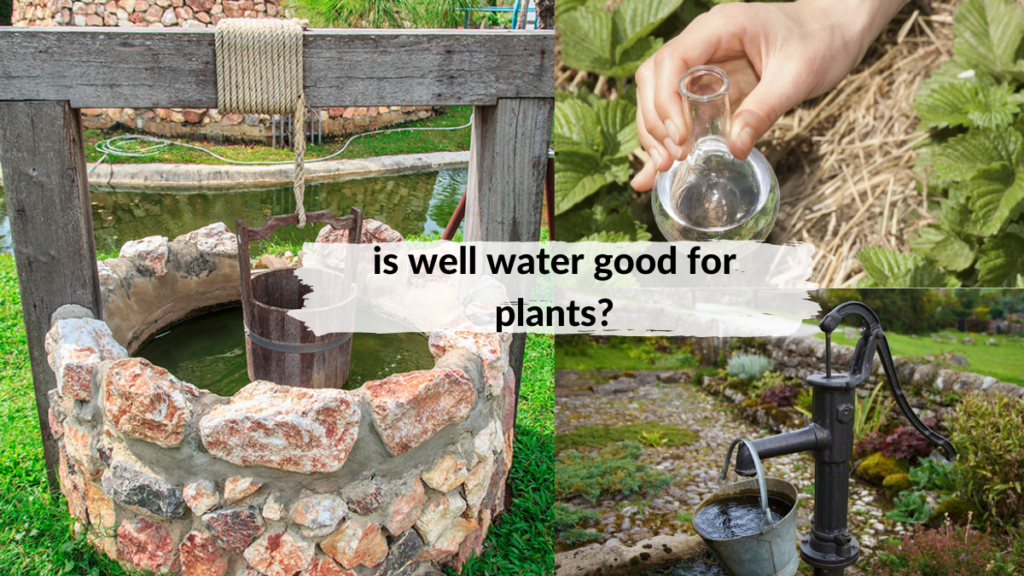A brief overview of the importance of mulch in vegetable gardens
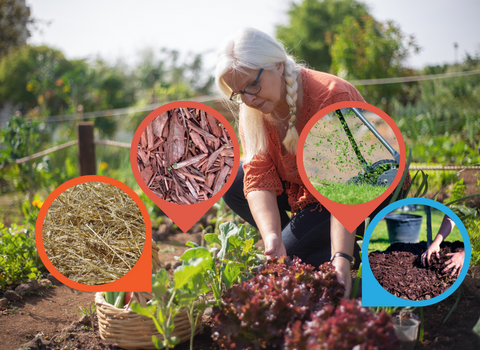
Mulch is a material layer applied to the soil surface in a vegetable garden. It serves several important purposes in gardens, such as:
moisture retention
Mulch helps to retain moisture in the soil, reducing the need for frequent watering and preventing the soil from drying out.
weed suppression
Mulch prevents weed growth by blocking light and preventing weeds from sprouting and growing.
soil temperature regulation
Mulch helps to regulate soil temperatures by insulating the soil, keeping it warmer in the winter and cooler in the summer.
soil improvement
Organic mulches, such as compost, leaves, or grass clippings, will break down over time and add organic matter to the soil, improving its fertility and structure.
pest control
Mulch can be a physical barrier to deter pests, such as slugs or cutworms, from reaching the plants.
aesthetics
Mulch can also provide a finished look to the garden, making it look neat and tidy.
Overall, mulch is an essential element in vegetable gardening as it helps to create a favorable environment for vegetable plants to grow, improves the soil, and suppresses weeds and pests.
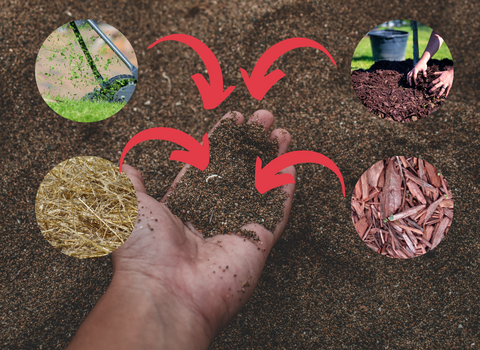
explanation of the different types of mulch available
There are many types of mulch, each with its own unique properties and benefits. Here are some common types of mulch and a brief explanation of each:
straw
Made from dried stalks of cereal grains such as wheat or barley. It is lightweight, easy to spread, and helps to retain moisture in the soil.
grass clippings
Made from freshly cut grass, it is a good source of nitrogen for the soil and suppresses weeds from growing.
leaves
Made from fallen leaves, they can be used as mulch or can be shredded and used as a soil amendment. They help to improve soil structure and retain moisture.
bark chips
Made from the bark of trees, they come in various sizes and last longer than other types of mulch. They help to suppress weed growth and improve the appearance of the garden.
compost
Made from organic materials such as leaves, grass clippings, and kitchen scraps, it helps to improve soil structure, and fertility and retain moisture.
manure
Well-rotted manure can be used as mulch and it is an excellent source of nutrients for the soil.
rubber
Made from recycled rubber tires, it is long-lasting, does not decompose, and does not attract insects, it can be used for landscaping and gardening.
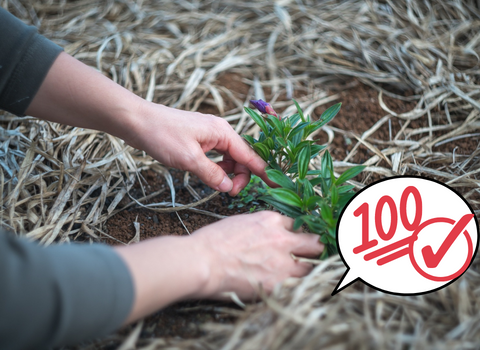
It’s important to note that all mulch types are not suitable for all plants, so you should research which type of mulch is best for your specific plants before applying it to your garden.
types of mulch
Organic and inorganic mulch are materials that are spread on top of the soil to improve its health, retain moisture, and control weeds.
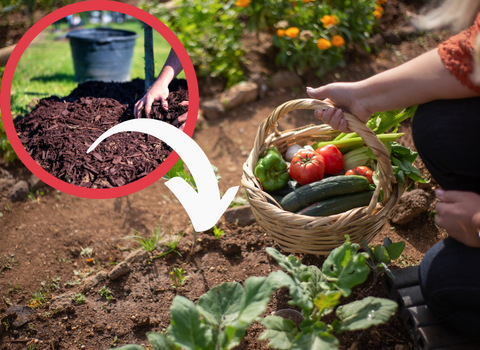
organic mulch
Organic mulch is made from natural materials such as leaves, grass clippings, and wood chips. It breaks down over time, adding nutrients to the soil.
pros of organic mulch
Here are some advantages of using organic mulch in a landscape or garden:
Nutrient addition: Organic mulch as they decompose, adds important nutrients such as carbon and nitrogen to the soil, which can benefit the plants growing in the area.
Moisture retention: Organic mulch can help retain moisture in the soil, reducing the need for frequent watering.
Weed control: Organic mulch can help control weeds by blocking sunlight and preventing weed seeds from germinating.
Soil health improvement: Organic mulch can improve the overall health of the soil by increasing microbial activity and promoting healthy soil structure.
Decorative: Some organic mulch, like bark or wood chips, can be visually appealing and add a decorative element to the landscape.
Easy to obtain: Organic mulch is often readily available and easy to obtain, and can be made from materials such as leaves, grass clippings, straw, or bark.
Cost-effective: Organic mulch is often less expensive than inorganic mulches since natural mulches can be found or created from organic scraps around your home
Environmentally friendly: It is a natural mulch, which is a biodegradable option, which is beneficial to the environment.
cons of organic mulch
Here are some potential drawbacks of using organic mulch options:
Decomposition: Organic mulches decompose over time, which means they will need to be replenished periodically.
Attracts pests: Some organic mulches, such as wood chips, can attract pests such as termites, carpenter ants, and other wood-destroying insects.
Can harbor diseases: Organic mulches can harbor diseases and pests that can infect plants.
Can become matted: Organic mulches, such as straw or grass clippings, can become matted down over time, which can reduce their effectiveness.
Can become moldy: Organic mulches that retain too much moisture can become moldy, which can be unsightly and can release mold spores into the air.
Can create unpleasant odor: If not kept dry, organic mulches can create unpleasant odors and can be a breeding ground for flies and other insects.
Can attract animals: Organic mulches, especially those made from food waste, can attract animals such as rats and raccoons.
Can be less visually appealing: Organic mulches such as straw or hay can be less visually appealing than inorganic mulches, and can give a shabby appearance.
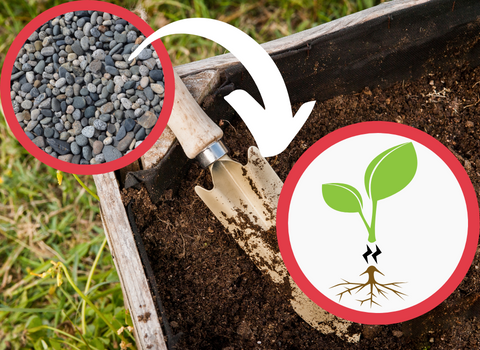
inorganic mulch
Inorganic mulches, on the other hand, are made from materials such as rocks, plastic mulch, or rubber. It does not break down and does not add nutrients to the soil.
pros of inorganic mulch
There are several advantages to using inorganic mulches in a landscape or garden:
Long-lasting: Inorganic mulches, such as rock and gravel, do not decompose like organic mulches, so they do not need to be replenished as often.
Low maintenance: Inorganic mulches do not require regular maintenance, such as raking and replenishing, unlike organic mulches.
Weed control: Inorganic mulches are effective at controlling weeds because they do not provide the necessary conditions for weed growth.
Temperature regulation: Inorganic mulches can help regulate soil temperatures by reflecting heat and keeping the soil cool in the summer.
Drainage: Inorganic mulches such as gravel can help improve drainage in poorly drained soils.
Decorative: Inorganic mulches such as decorative rocks or colored gravel can add a decorative element to your landscape.
cons of inorganic mulch
Here are some potential drawbacks of using inorganic mulches:
Cost: Inorganic mulches can be more expensive to purchase and install than organic mulches.
No nutrient addition: Inorganic mulches do not add any nutrients to the soil.
Can be hard to walk or work on: Some inorganic mulches, like gravel, can be uncomfortable to walk or work on especially on vegetable garden pathways.
Not suitable for all plants: Inorganic mulches may not be suitable for certain types of plants, as they can retain too much heat or dry out the soil.
Environmental Impact: Inorganic mulches like rock and gravel can be damaging to natural habitats and ecosystems, as they can prevent vegetation from growing and can change the natural water flow, and can be unsightly in natural environments.
Not visually appealing: Some people find inorganic mulches like gravel unappealing, and prefer the look of organic mulches like bark or straw.
Can be difficult to remove: once inorganic mulches such as gravel are installed, they can be difficult to remove.
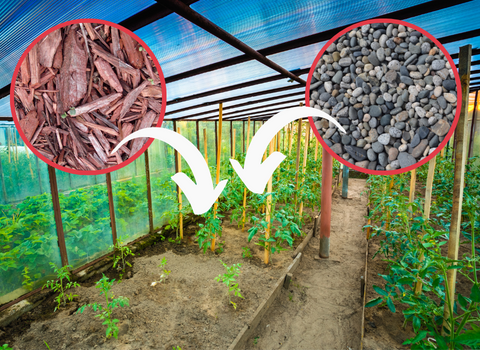
Using both organic and inorganic mulches in vegetable gardens can provide a variety of benefits. Organic mulch can improve soil structure and fertility while inorganic mulches can help control weeds and retain moisture in the soil.
A combination of both types of mulch can provide a balance of benefits while minimizing drawbacks. It is important to note that when using inorganic mulches, they should not be in direct contact with the stem of the plants.
best mulch for vegetable gardens
- Straw or hay bales: These materials are inexpensive and readily available, and they help to suppress weeds and retain moisture in the soil.
- Grass clippings: Freshly cut grass can be used as mulch, but it should be used sparingly as it can mat down and become difficult for water and air to penetrate.
- Leaves: Shredded leaves make excellent mulch for vegetable gardens. They help to suppress weeds, retain moisture, and add organic matter to the soil as they break down.
- Compost: This is an excellent mulch for vegetable gardens. It helps to suppress weeds, retain moisture, and add valuable nutrients to the soil.
- Bark mulch: Mulch made with bark is long-lasting and helps to suppress weeds and retain moisture in the soil. It also gives a finished look to the vegetable garden bed.
- Sawdust: Though this can be used as mulch, it should be used sparingly as it can mat down and become difficult for water and air to penetrate.
- Wood chip mulch: Wood chips can be used as mulch, but they may rob the soil of nitrogen as they break down, so it’s best to mix them with other mulch materials or mix them with soil.
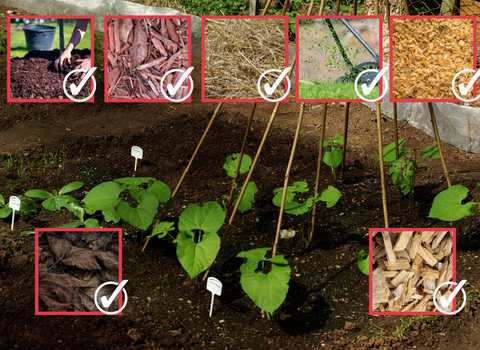
pros and cons of each mulch type for vegetable gardens
hay or straw mulch
Pros include being inexpensive and readily available. It also helps in controlling weeds and retaining moisture in the soil.
Cons include the potential for pine straw or hay to blow away in windy conditions, and it may contain weed seeds.
grass clippings
Pros include being readily available and controlling weed growth and retaining moisture in the soil.
Cons include the potential for grass clippings to mat down and become difficult for water and air to penetrate, and it may contain weed seeds.
leaf mulch
Pros include being readily available, helping to suppress weeds, retaining moisture, and adding organic matter to the soil as they break down.
Cons include the potential for leaves to mat down and become difficult for water and air to penetrate.
compost pile
Pros include helping to control weeds, keeping the soil moist, and adding valuable nutrients to the soil.
Cons include the need to make or obtain compost, and it may contain weed seeds if not well-composted.
bark mulch
Pros include being long-lasting, helping to control weeds and retaining moisture in the soil, and giving a finished look to the vegetable garden bed.
Cons include being more expensive than some other mulch types, and it may not add any organic matter to the soil.
sawdust
Pros include being readily available and can control weeds and keep the vegetable garden soil moist.
Cons include the potential for sawdust to mat down and become difficult for water and air to penetrate, and it may rob the soil of nitrogen as it breaks down.
wood chip mulch
Pros of wood mulch include being long-lasting, suppressing weeds, and retaining moisture in the soil.
The cons of using wood mulch include being more expensive than some other mulch types, and it may rob the soil of nitrogen as wood chips break down. It’s also important to make sure that the wood chips are not treated with any chemicals before using them as mulch in vegetable gardens.
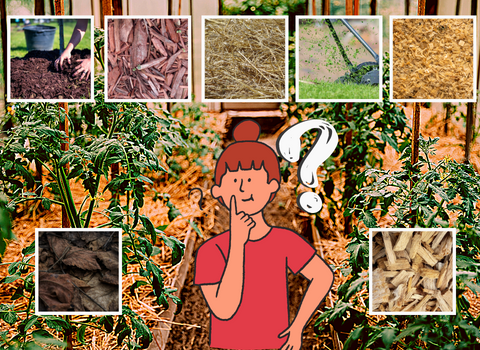
tips for choosing the right mulch for your specific vegetable garden
When choosing the best mulch for vegetable gardens, consider the following tips:
- Choose a mulch that is organic and free of weed seeds, such as shredded leaves, straw, or grass clippings.
- Avoid using wood chips or bark mulch, as the wood chips tie up nitrogen in the soil and make it unavailable to plants.
- Consider the water-retention properties of the mulch you choose. Mulches like straw and grass clippings can dry out quickly, while shredded leaves and compost can help conserve moisture in the soil.
- Apply mulch around the base of plants, but avoid covering the stem or crown.
- Mulch can also help to regulate soil temperature, so consider the climate of your area when selecting a mulch.
- Lastly, consider the appearance of the mulch in your garden. Some mulches, such as straw, can be unsightly and detract from the appearance of your vegetable garden.
how to apply mulch in a vegetable garden:
preparing the soil:
- Test your soil to determine its pH level and nutrient content.
- Add any necessary amendments, such as compost or fertilizer, to ensure that the soil is in optimal condition for planting.
- Till or dig the soil to loosen it and remove any large clumps or rocks.
- Rake the soil to create a smooth, level surface for planting.
applying the mulch:
- Clear the area around your plants of any debris or weeds.
- Spread a 2-3 inch layer of mulch over the soil surface. Make sure to leave a few inches of space around the base of each plant to allow for proper air circulation.
- Use a rake or hoe to smooth out the mulch and ensure an even layer.
- Water the mulch and the soil underneath to help it settle and to prevent it from blowing away.
maintenance and upkeep:
- Monitor the mulch for signs of decomposition, and add more as needed to maintain a consistent 2-3 inches thick layer.
- Keep an eye out for any weeds that may have sprouted through the mulch and remove them promptly.
- Check for any pests or diseases that may be affecting your plants and take appropriate action.
- Water and fertilize your plants as needed, being careful not to disturb the mulch layer.
- Keep an eye on the mulch, and make sure it isn’t too close to your plants’ stems, and that it’s not getting too thick, as this may lead to pests and disease.
why you should try mulching in your own garden
Mulching is a great way to improve the health and productivity of your vegetable garden.
It helps to conserve moisture in the soil, prevent weed growth, and add organic matter to the soil as it decomposes. Mulching also helps to regulate soil temperature, which can be especially beneficial in hot or cold climates.
By choosing the right type of mulch for your specific garden and applying it correctly, you can enjoy a bountiful harvest and healthier plants. Plus, it makes your garden look neat and tidy.
If you’re new to mulching, start small and see how it works for you. You can always add more mulch later on as needed. Give it a try and see the difference it can make in your garden.
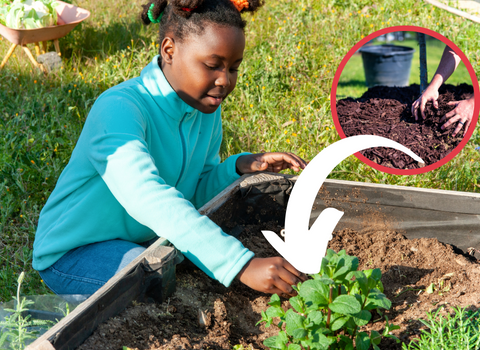
additional tips for vegetable gardening success
Plan your garden: Before you start planting, take some time to plan out your garden. Consider factors such as the amount of sunlight and shade different areas of your garden receive, as well as the soil type and drainage. This will help you choose the right plants for the right spots and ensure that they have the best chance of thriving.
Improve your soil: Vegetables need nutrient-rich soil to grow well. Consider adding organic matter such as compost or well-rotted manure to your soil to improve its fertility. You can also test your soil to see what specific nutrients it is lacking and then amend it accordingly.
Watering: Consistently watering your plants is important for their growth and development. However, be careful not to over-water, as this can lead plants’ roots to rot. Instead, aim to keep the garden soil consistently moist but not waterlogged.
Use mulch: Using mulch in your garden can help to reduce the amount of water your plants need, as well as suppress weed growth. Organic mulches such as straw, grass clippings, or leaves are particularly effective.
Pest management: Pest can be a major problem in vegetable gardens. Keep an eye out for common garden pests such as aphids, spider mites, and whiteflies, and take action quickly to control them. You can use natural pesticides or handpick pests if you prefer an organic solution.
Companion planting: Companion planting is the practice of planting certain vegetables together to enhance their growth. For example, planting tomatoes and basil together can help to repel pests and improve the flavor of both crops.
Harvesting: Regularly harvesting your vegetables will encourage them to produce more, so don’t be afraid to pick your produce as soon as it’s ready. This will also keep your garden looking neat and tidy.
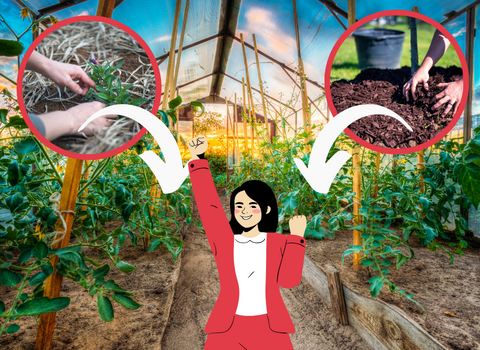
conclusion
summary of the best mulch for vegetable gardens
The best mulches for vegetable gardens are those that are organic, weed-free, and able to retain moisture in the soil while also adding organic matter. Some of the best options include shredded leaves, straw, grass clippings, and compost.
It is also important to choose a mulch that will not tie up nitrogen in the soil and to apply it in a way that allows for proper air circulation around the base of the plants. It’s also important to check for pests or diseases and remove them promptly.
Finally, monitor the mulch and add more as needed to maintain a consistent 2-3 inches thick layer, and to keep it from getting too thick.



